ED raids three firms, freezes shares worth Rs 86 crores held by Agusta middlemen
The Enforcement Directorate on Monday searched 10 premises of three firms in Delhi, Mumbai and Hyderabad and froze shares worth Rs 86 crore held in them by Guido Haschke and Carlo Gerosa, two middlemen wanted in the AgustaWestland scam.
The shares were allegedly bought with 28 million euros worth of bribes that Haschke and Gerosa allegedly received from AgustaWestland (AW) Ltd for helping it acquire the deal in India in 2010.
The shares were frozen under provisions of the Prevention of Money Laundering Act, says the Hindustan Times.
No communication between NSAs of India and Pak since 'Indian spy' Jadhav's arrest
The National Security Advisers of Indian and Pakistan have not communicated with each other ever since Pakistan's NSA Nasser Khan Janjua phoned India's NSA Ajit Doval to tell him of the arrest of alleged Indian spy Kulbhushan Jadhav in late March.
The close contact between the two NSAs had been a sign that the Modi government's attempt for friendly ties with Pakistan was still on track.
According to the Hindustan Times, India had reacted badly to Pakistan naming Doval as one of Jadhav's handler's at a press conference on 29 March.
Bihar refuses to observe International Day of Yoga, celebrates World Music Day instead
Accusing Prime Minister Narendra Modi of turning yoga into branding tool for himself, the Nitish Kumar-led Bihar government is not celebrating International Day of Yoga today, but observing World Music Day that also falls on 21 June.
"The Centre is spending huge money on promotion of yoga. It has converted yoga into a political akhara (wrestling ground), whereas the fact is that Prime Minister Narendra Modi is using it for self-branding," said JD(U) spokesperson Sanjay Singh, according to the Hindustan Times.
Govt considers proposal to use part of RBI capital to pump money into PSU banks
The government is contemplating a proposal to use part of the Reserve Bank of India's "excess capital" to pump money into public sector banks or create a state-owned 'bad bank' that will resolve bad loans and leave the PSU banks to get on with their work.
The proposal was made by chief economic advisor Arvind Subramanian in the Economic Survey for 2016-17. Addressing the 'Twin Balance Sheet' challenge of highly-leveraged corporate houses and non-performing assets of PSU banks, Subramaniam said that the RBI's capital is a possible source of resources, according to The Indian Express.
Avoid divergent views in court cases: Cabinet secy to all ministries
Cabinet secretary PK Sinha sent a note to all ministries on 16 June advising them to stay united in their statements in court cases, and resolve any differences they may have through discussions.
Sinha observed in his note that "at times different departments take divergent positions or individual interpretations in court cases", causing "avoidable confusion in the submissions finally deliberated upon before the courts", according to The Economic Times.
2 Indians among 14 killed in Kabul suicide bombing
Two Indian nationals, Ganesh Thapa and Govind Singh from Dehradun, were killed along with 12 others on Monday when a suicide bomber targeted their bus in Kabul. The bus was filled with the security personnel of the Canadian embassy in Kabul.
Most of the 12 others who died were from Nepal, says NDTV.
Vikas Swarup, spokesperson of the MEA, tweeted that the "government is in touch with the families of Indian nationals & is working with the Afghan Govt to repatriate their mortal remains at the earliest".
Ancient DNA tells of two origins for dogs
Genetic analyses of a 4,800-year-old Irish dog and 59 other ancient dogs suggest that canines and humans became pals in both Europe and East Asia long before the advent of farming, says a report in sciencenews.org.
Later, dogs from East Asia accompanied their human companions to Europe, where their genetic legacy trumped that of dogs already living there.
Therefore, dogs were domesticated at least twice. That muddled genetic legacy may help explain why previous studies have indicated that dogs were domesticated from wolves only once, although evidence hasn't been clear about whether this took place in East Asia, Central Asia or Europe.
The idea that dogs came from East Asia or Central Asia is mostly based on analysis of DNA from modern dogs, while claims for European origins have been staked on studies of prehistoric pups' genetics.
A 4,800-year-old dog found in a tomb in Newgrange, Ireland, is the first ancient dog to have its entire genetic instruction book, or genome, deciphered. Researchers don't know much about what the midsize dog looked like; it doesn't bear any genetic markers of particular modern dog breeds, Frantz says. "He wasn't black. He wasn't spotted. He wasn't white." Instead, the Newgrange dog was probably a mongrel with fur similar to a wolf's.
Solar costs will be down 59% by 2025: study
The International Renewable Energy Agency has said in a new report that the average cost of generating electricity from renewable sources by 2025 will be lower by nearly 59 per cent. This fall would be seen in the generation of solar energy, whose costs are already 80 per cent lower since 2009. Average wind energy costs will reduce by 35 per cent (for offshore wind) and 26 per cent (onshore), the report says. Since 2009, wind turbine costs are down 30-40 per cent.


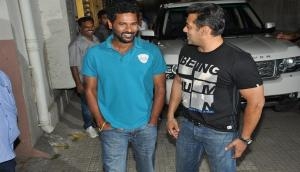
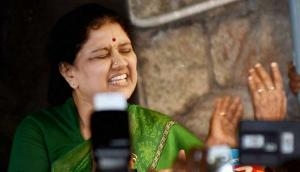
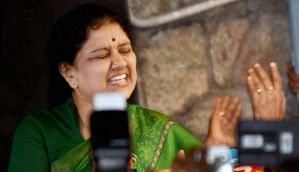
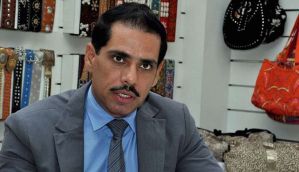
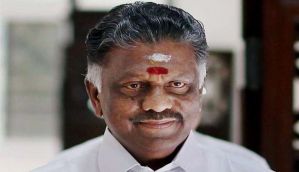
![BJP's Kapil Mishra recreates Shankar Mahadevan’s ‘Breathless’ song to highlight Delhi pollution [WATCH] BJP's Kapil Mishra recreates Shankar Mahadevan’s ‘Breathless’ song to highlight Delhi pollution [WATCH]](https://images.catchnews.com/upload/2022/11/03/kapil-mishra_240884_300x172.png)

![Anupam Kher shares pictures of his toned body on 67th birthday [MUST SEE] Anupam Kher shares pictures of his toned body on 67th birthday [MUST SEE]](https://images.catchnews.com/upload/2022/03/07/Anupam_kher_231145_300x172.jpg)






